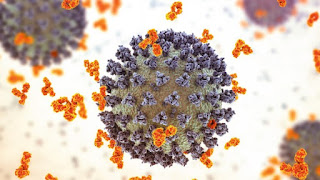Asymptomatic and infections to life-threatening disease
Immunology is the study of the immune system and is a very important branch of the medical and biological sciences. The immune system protects us from infection through various lines of defence.
SARS-CoV-2 infections display tremendous interindividual variability, ranging from asymptomatic infections to life-threatening disease.
Inborn errors of, and autoantibodies directed against, type I interferons (IFNs) account for about 20% of critical COVID-19 cases among SARS-CoV-2-infected individuals. By contrast, the genetic and immunological determinants of resistance to infection per se remain unknown. Following the discovery that autosomal recessive deficiency in the DARC chemokine receptor confers resistance to Plasmodium vivax, autosomal recessive deficiencies of chemokine receptor 5 (CCR5) and the enzyme FUT2 were shown to underlie resistance to HIV-1 and noroviruses, respectively. Along the same lines, we propose a strategy for identifying, recruiting, and genetically analyzing individuals who are naturally resistant to SARS-CoV-2 infection.




Comments
Post a Comment